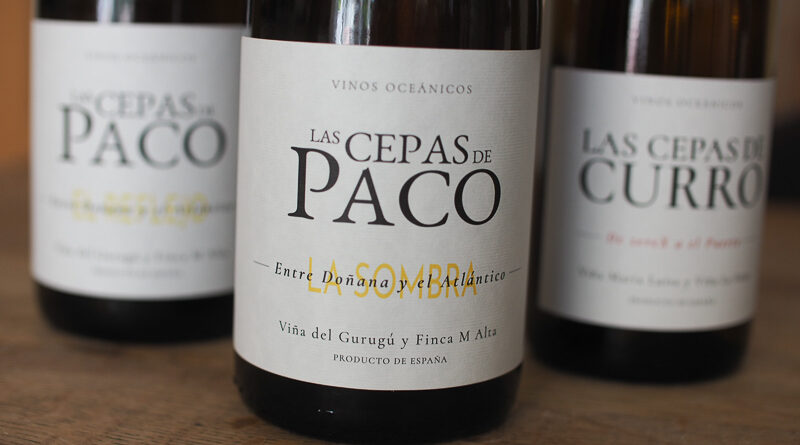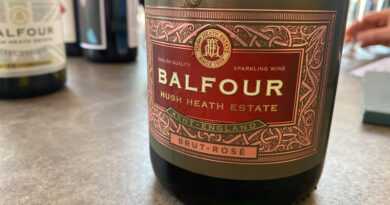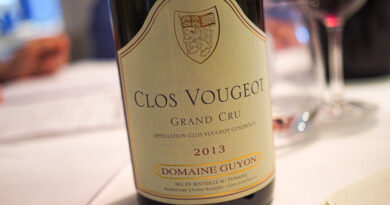Vinos Oceánicos: unfortified wines from Sherry country, made in clay
Raúl Moreno is the dude behind this new venture (first harvest 2017) in Sherry country: Vino Oceánicos. He works with single vineyards (40 years+) in Sanlucar de Barrameda, Puerto de Santa Maria, Jerez and Rota, making two lines of wines, natural and conventional wines.
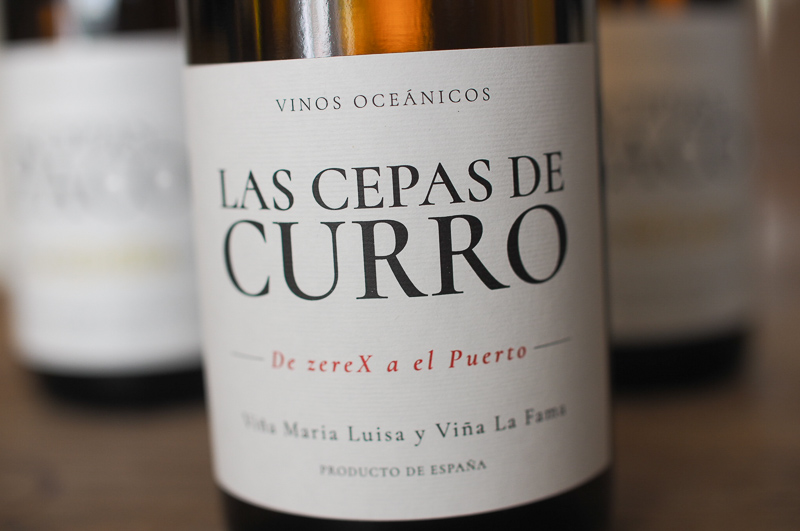
Remarkably, all the wines are made in clay, and these vessels are either Georgian qvevris or Albariza-based tinajas, ranging from 300-1500 litres.
The Spanish tinajas are particularly interesting. ‘Three years ago we started collecting samples of albariza and clay from Sanlucar de Barrameda and Chipiona,’ says Moreno. ‘We have been liaising with the Moreno León family in Caceres, who are the oldest Spanish family crafting wine clay pots. They made all our chalk Tinajas following our specifications.’ The Qvevris are buried in chalk and the Tinajas are free standing.
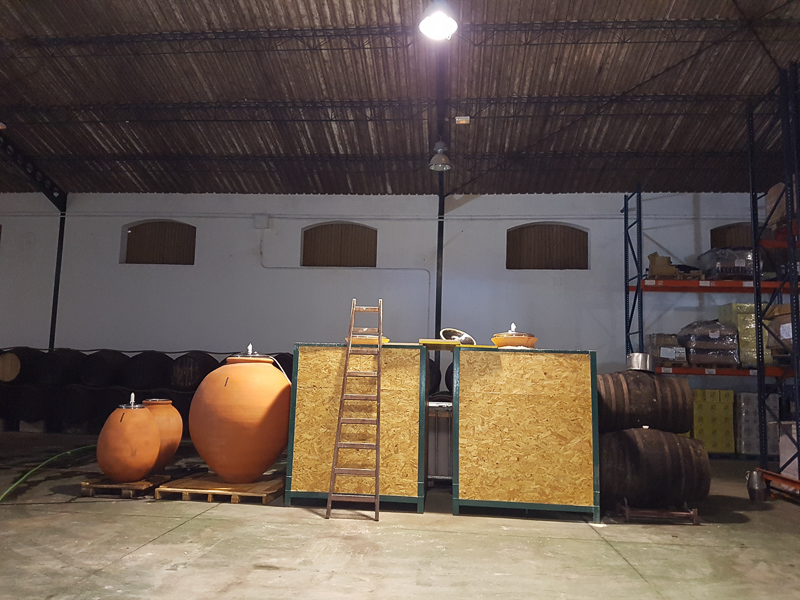
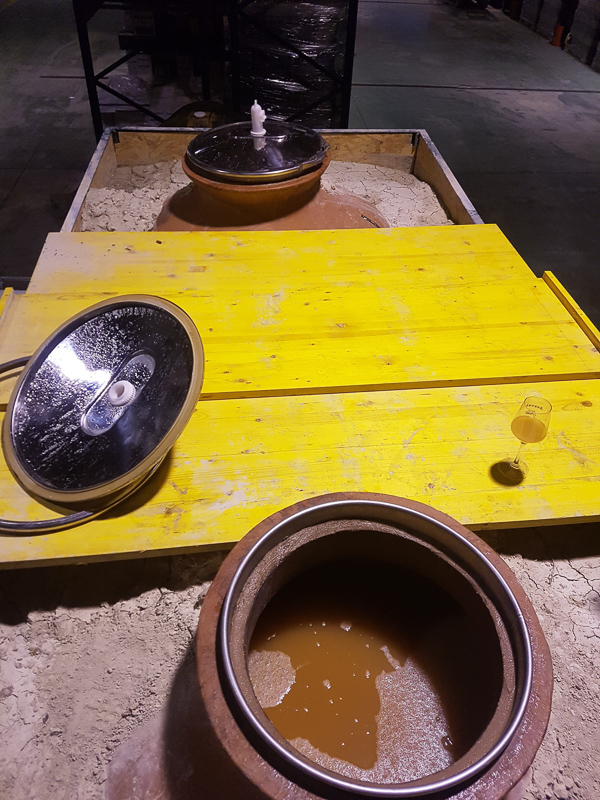
Moreno explains his vinification: ‘The natural wines are fermented on skins for periods ranging in between 10 days to 3 weeks. No additives are added to them and the total sulphur levels are less than ten parts per million. The natural wines are elevated oxidatively in Qvevris for six months and afterwards are transferred to Manzanilla and Amontillado barrels where they are elevaged under Flor for another six months. Al the wines are fermented with full solids and they are all also aged with gross and fine lees.’
THE WINES
Vinos Oceánicos Las Cepas de Curro Viña Maria Luisa y Viña La Fama 2019 Spain
11.5% alcohol. This is a conventional wine made from Moscatel and Palomino from Albariza soils, all in stainless steel, natural ferment. Saline, slightly nutty, appley nose showing nice complexity. The palate is stony, mineral and beautifully poised with a slight saline edge to the pear and apple fruit, with just a hint of savoury cheesiness. Long, fresh finish with a lemony taper. Lovely stuff. 92/100
Vinos Oceánicos Las Cepas de Curro Viña Maria Luisa y Viña La Fama 2018 Spain
Moscatel de Alejandría (60%) and Palomino (40%), from albariza in Jerez (Palomino) and Puerto de Santa Maria (Moscatel). Natural fermentation and ageing in stainless steel. 11% alcohol. Vibrant, saline and tangy, with a lovely citrus drive complemented by subtle saline notes, some nice graininess, and a lovely acid line. There’s some grapefruit pith and a touch of fine herbs. Such lovely fruit here: really fine. Lovely focus and density here. 92/100
Vinos Oceánicos Las Cepas de José Carlos La Villa de Rabita Rutta Rosé 2019 Spain
This is from ancient varieties grown on albarizas, with some maceration. 11% alcohol. It’s an attractive orange pink colour and has some almond, spice and cherry fruit on the nose. The palate is supple and bright with some warmth on the mid-palate and notes of nuts, apples and red fruits, with an orange peel finish. 90/100
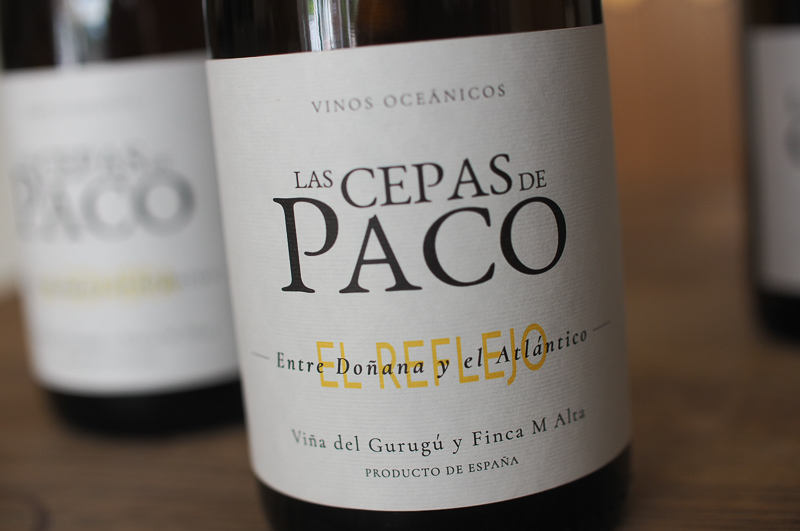
Vinos Oceánicos Las Cepas de Paco ‘El Reflejo’ Viña del Gurugú y Finca M Alta 2018 Spain
12% alcohol. An old clone (84) of Palomino with low production. Full gold in colour, this is a striking wine, showing great concentration, with some bass notes of nuts, honey, spice, treacle and old wood underneath textured, slightly saline fruit. It’s really distinctive: there’s a touch of grainy clay, but there’s also some old Sherry-style richness, as well as focused fruit. I don’t think I’ve ever tasted a wine like this. 93/100
Vinos Oceánicos Las Cepas de Paco ‘La Sombra’ Viña del Gurugú y Finca M Alta 2018 Spain
12.9% alcohol. An old clone (84) of Palomino with low production. Six months in 1500 litre qvevri followed by 6 months in Amontillado barrels. Gold/bronze in colour, this is bright, vivid and tangy with a spicy, stony, nutty edge to the vivid citrus and pear fruit. There’s a savoury toffee, toast and spice character here, and keen acidity. So distinctive and intense with a lovely salty edge to the complex palate. 94/100
No UK distribution
Find these wines with wine-searcher.com

